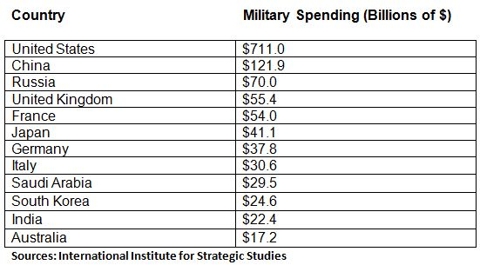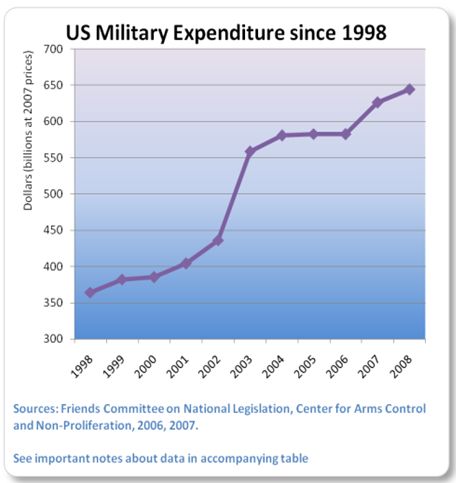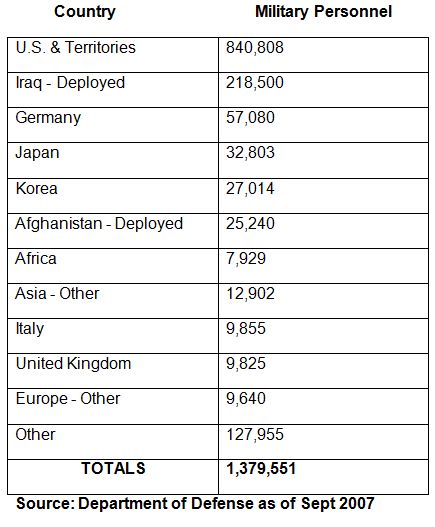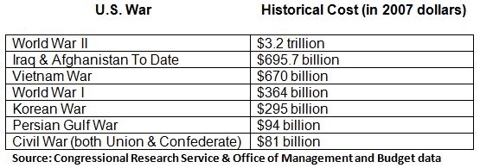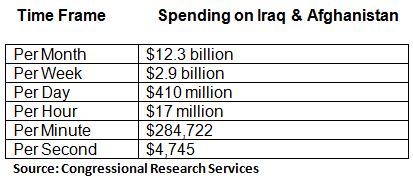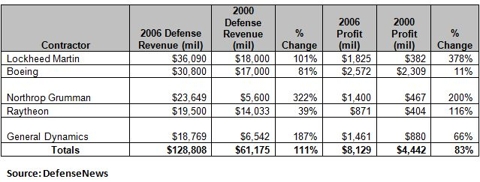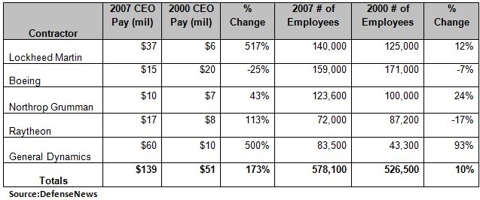BLOOMBERG NEWS
http://www.bloomberg.com/apps/news?pid=20670001&refer=&sid=aYYHKPn4DOe8
Hidden Bonuses Enrich Government Contractors at Taxpayer Cost
By David Dietz
Jan. 29 (Bloomberg) -- U.S. Senator Kit Bond shifted in his chair at a 2005 congressional hearing, poised with a question on national security. He turned to Treasury Secretary John Snow, who was seated at a witness table.
Was Snow sure, asked Bond, a
“Yes, absolutely,” Snow said.
A year later, in July 2006, the
There was a final ignominy: Under the terms of the contract, Electronic Data Systems Corp., the vendor, collected a bonus of $638,126.
As the federal government’s $700 billion bailout of banks sputters, there’s an object lesson for the new administration of President Barack Obama: Federal departments, including Treasury itself, routinely squander tens of billions of dollars a year in taxpayer money as they farm out public business to private corporations.
Obama, like presidents before him, said during his bid for the White House that he wanted to curtail waste in government. With contracting, he faces a mismanaged system that accounts for almost 40 cents of every federal dollar spent outside of mandatory obligations such as Social Security and Medicare.
Not Earmarks
When compared with all federal contracting, just a fraction of U.S. spending waste comes from so-called earmarks, which elected officials often criticize as the unnecessary pet projects of politicians.
The “Bridge to Nowhere” in
“We have a broken, broken system that rewards incompetence,” says Coburn, 60, who has been examining purchasing breakdowns since his election to Congress in 2005. “We need to totally change contracting.”
Bureaucrats, not elected officials, run the
No Access
Just as taxpayers can’t find out how the Treasury and the Federal Reserve used the first half of the bank bailout, Americans are often denied access to public records that provide details on how hundreds of billions of taxpayer dollars are spent in contracts.
Bloomberg News filed Freedom of Information Act requests with the Treasury Department, the Commerce Department and the Fed asking for documents on the bailout and routine contracts.
As of Jan. 12, seven months after receiving the first request, the three agencies had provided incomplete documents with blacked-out words or nothing at all.
In many cases, bureaucrats are motivated to give millions of dollars in bonuses to contractors no matter how poorly a company performs because generosity with taxpayer money may help them land better-paying jobs after they leave the government.
Contractors on dozens of jobs at federal departments collected more than $8 billion in what federal auditors said were unwarranted bonuses from 1999 to 2005.
‘A Total Mess’
In 2007, military radio maker Harris Corp. developed a hand- held computer for the 2010 census that failed to work in tests in a
“Contracting is a total mess,” says John Lehman, who fought procurement waste as secretary of the Navy from 1981 to 1987 partly by banning costly contract changes once work was under way, according to Navy records.
“I don’t think in the history of the country it’s been as bad as it is today,” says Lehman, 66, now chairman of J.F. Lehman & Co., a New York-based private equity firm. “You have a system where no one is in charge and no one is held accountable.”
As Obama was gearing up for an economic stimulus starting with about $825 billion in taxpayer money, he said at a news conference on Jan. 6 that the government had to find savings in the federal budget. Because of his rescue package, Obama warned that the budget deficit might exceed $1 trillion for years to come.
More Contracts
He didn’t provide specifics about cuts, including how he might attack contracting waste.
Obama’s spending plan will create new federal contracts as the government pours money into education, public works and expanded technology.
Unless the new president bores in on those projects and existing contracts to examine how funds are being used, he’ll overlook billions of dollars in potential savings, says Thomas Schatz, president of Citizens Against Government Waste, a Washington-based nonprofit.
“There are always efforts to try to make things more efficient, and I’m sure the Obama administration will do the same,” Schatz says. “But the agencies don’t necessarily pay much attention to what’s going on at the White House, and you may get business as usual.”
Obama’s pledges to cut waste mimic promises of previous presidents, including Ronald Reagan and Bill Clinton. Reagan’s Grace Commission -- named for its chairman, J. Peter Grace, chief executive officer of chemical maker W.R. Grace & Co. -- scoured the government in a quest to streamline.
Past Failures
Most Cabinet secretaries don’t probe for waste in contracts on their own and don’t push procurement subordinates to police work that’s farmed out.
That lack of accountability holds true even when projects make up significant chunks of their budgets, says Todd Zinser, inspector general at the Commerce Department.
“What happens is, a lot of senior leaders don’t view that as part of their job,” he says. “But if you’re going to head up an agency whose mission is relying on a large acquisition, then it’s a necessity that that leader be hands-on.”
Beacons for Good Conduct
The public may be perplexed when federal agencies such as Treasury and Commerce dribble away billions of dollars a year on wasteful contracts, says Daniel Guttman, a lawyer who teaches public administration at
He’s studied federal contracting since the 1970s. After all, he says, those departments are supposed to act as beacons for good business conduct and are typically run by former Wall Street or corporate executives.
“The truth is, we have a tradition of great businessmen who’ve been the worst contract managers,” he says.
Much of the squandering occurs through so-called cost-plus contracts, which have been in use for almost 100 years. The system, which originally was intended to reward defense contractors for fast and efficient work during World War I, offers bonuses for exceptional performance.
Federal departments have long since abandoned the intended purpose of cost-plus, and bureaucrats who run contracts routinely award bonuses for almost everything, even when a program fails completely, Lehman says.
‘Paying Through the Nose’
“There’s too much gold plating and little accountability with most programs being done on a cost-plus basis,” he says. “We’re paying through the nose.”
From 2002 to 2005, Los Angeles-based Northrop Grumman Corp. collected $123 million in bonuses on a Commerce Department-led project for a weather satellite system that became the subject of four congressional hearings because of billions of dollars in waste.
The payments were authorized by contract manager John Cunningham, a retired Air Force colonel with a walrus mustache who worked for the National Oceanic and Atmospheric Administration from a 10th-floor federal office in
Cunningham, 60, didn’t respond to telephone, e-mail and in- person requests for comment.
Closeness with contractors develops through repeated hiring of the same companies, often without competitive bidding and even after vendors admit in criminal cases that they cheated the very agencies that gave them work.
Criminal Referrals
Treasury Department agencies, including the Internal Revenue Service, currently have more than $13 million in auditing and telecommunications service contracts with a firm that the Treasury Department had referred to federal prosecutors.
KPMG LLP of New York, the fourth-largest accounting firm by revenue, paid $456 million in 2005 to settle a Justice Department complaint that it had sold phony tax shelters to wealthy clients, wrongly diverting $2.5 billion that should have gone to Treasury.
That wasn’t the only time KPMG has been accused of cheating the government. In 2006, a year after the tax shelter case, KPMG and three other consulting companies paid $25.7 million to settle federal civil lawsuits accusing them of overbilling the Treasury Department and various agencies for travel. KPMG didn’t admit or deny wrongdoing.
Still, the department continued to award contracts to KPMG. Treasury spokeswoman Courtney Forsell says agency contracting meets federal rules. KPMG spokesman Daniel Ginsburg declined to comment.
‘Revolutionizing Census’
Mostly, the contracting system goes wrong through spending waste and not lawbreaking. When the Census Bureau hired Harris Corp. in 2006 to provide a hand-held computer for the 2010 nationwide survey of Americans, the agency heralded the $600 million contract as a milestone in census modernization.
Census director Louis Kincannon said the computer would cut down on paper by allowing canvassers to electronically survey households that didn’t return census forms.
“We are revolutionizing the census,” he said in a press release on March 30, 2006.
In June, three months after the contract was signed, Coburn peered down at Kincannon at a congressional hearing and asked what would happen if the computers didn’t work.
“They will work,” Kincannon said. “You might as well ask me what happens if the Postal Service refuses to deliver the census form.”
They didn’t work.
‘People Quit’
In 2007, the bureau tested some of the devices. The small computers shut down during a heat wave in
Kelli Hermesch’s frustrations with the device came on a lonely dirt road in
The computer said they were standing someplace else, she says. Hermesch says such snafus wore crews down.
“I had people quit on me,” she says. “It was definitely frustrating.”
Today, the revolution is largely a bust. Last April, the Census Bureau said it would go back to pen and paper for canvassing and use the computers only to verify addresses of households.
44-Fold Increase
The project has cost $1.3 billion -- more than double the original estimate. In a big gaffe, both the government and Harris had miscalculated the cost of a help desk for canvassers. Harris and the agency had originally budgeted $5 million.
The price has since jumped to $220 million, a 44-fold increase, according to government records.
Perhaps worst of all, Coburn says, was that Harris collected $14.2 million in bonuses.
“It’s ridiculous,” he says. “They didn’t even perform competently. You could do what they tried to do on a cell phone.”
At a congressional hearing last April, Representative Alan Mollohan, a
Gutierrez said officials handling the census contract appeared to have let Harris get away with unacceptable work.
“Well, the bonuses were given on the basis of goals that were set,” Gutierrez said. “I think the right goals weren’t there, and they got paid a bonus for something that proved to be less than what they should have delivered.”
‘We Are Pleased’
Cheryl Janey, president of civil programs for Harris, told a congressional hearing in 2007 that the company was still working with the Census Bureau on using other features of the hand-held computer. She said the device was reliable.
The bureau’s repeated requests for changes to the computer - - 419 in all -- slowed the project, Janey testified. In a written statement, Harris said it was committed to finishing the job.
“We are pleased with the progress we are making and remain significantly involved in helping modernize the customer’s data and technology,” the company wrote.
The Treasury Department had a similar flop in 2004 and 2005.
EDS Contract
After the Sept. 11, 2001, terrorist attacks, the agency’s Financial Crimes Enforcement Network hired Plano, Texas-based EDS, the world’s second-biggest computer services provider, to install a computer that would let outside law enforcement agencies uncover money laundering by terrorists. The computer, replacing outdated systems at Treasury and the IRS, would house bank and brokerage reports of large cash transactions.
EDS, which was bought by Palo Alto, California-based Hewlett-Packard Co. in August, won the job in competitive bidding in June 2004. Treasury gave the company a tough deadline. It wanted the system by October 2005 -- about 15 months later -- and guaranteed the company a bonus to spur it to deliver.
Within weeks, the project had veered off track, according to audits in 2006 by a team of investigators from the Treasury’s inspector general’s office and the Government Accountability Office. Treasury and EDS didn’t assign enough staff and put inexperienced people on the job, causing delays lasting months, according to the reports.
When former Treasury Secretary Snow appeared before Congress in April 2005, he was upbeat about the system’s promise. He said nothing at the time about whether he knew of growing breakdowns.
‘Risk Increased’
By late 2005, the project was in disarray. The system couldn’t cope with millions more cash transaction reports than were expected. In tests, simple computer inquiries took longer to complete than under the old system, according to the inspector general’s report.
In 2006, an internal Treasury review team said the system couldn’t be trusted because no one conducted sufficient examinations of the information it stored.
“Pressure on the network and contractor staff intensified, risk increased, milestones slipped, costs increased and quality degraded,” the team wrote in its report.
Robert Werner, who had been on the job as network director for two weeks, halted the contract in March 2006. Treasury went back to the old system.
“In good conscience, I could devote no further resources to the project when I can find no guarantee that any amount of added spending would ever produce the desired result,” Werner said in a Treasury announcement.
‘Client’s Requirements’
In the end, $14.7 million was gone -- plus the $638,126 bonus EDS had negotiated when it signed the contract. EDS said it did what it was asked.
“EDS was disappointed when the agency decided to terminate the contract, but we respected and supported our client’s decision to reassess the project,” company spokesman Bob Brand says. “At all times during our involvement with the contract, EDS was responsive to the client’s requirements.”
Snow, 69, declined to comment. He’s now chairman of Cerberus Capital Management LP, a New York-based private equity firm.
Northrop Grumman says it also has been doing all it can to finish what it started. When NOAA awarded the company a contract, with bonus provisions, to build the $6.5 billion weather satellite system in 2002, the Commerce Department touted the job as a breakthrough in contract cooperation among federal agencies.
‘Count on Us’
For the first time, the Defense Department, the National Aeronautic and Space Administration and NOAA agreed to avoid duplication and jointly build satellites that would conduct both weather surveillance and military reconnaissance.
Best of all was the cost savings: NOAA said in a project description in 2002 that the joint project would save the government $1.6 billion.
“Count on us,” contract manager Cunningham told the American Meteorological Society in a speech in
The project called for launching six satellites to replace ones that were wearing out. The first launch was scheduled for 2008. It hasn’t happened, and the program has gone from an economic boon to a taxpayer catastrophe.
The budget has doubled to $13.1 billion and a test satellite isn’t scheduled to be launched until next year. NOAA laid the blame on planning that underestimated the complexity of the project and on breakdowns of a satellite sensor to measure global warming.
Tracing Failures
An independent team of scientists that reviewed the contract traced project failures in 2005 to NOAA, saying the agency ceded too much control to Northrop.
“The program office needs to decide if it should provide a more proactive oversight for the program rather than delegate so much to the prime,” the team said. “This would help ensure mission success.”
The breakdowns didn’t keep Cunningham, who quit NOAA in 2005, from paying Northrop as if the company were a master manager. From 2002 to 2005, he gave Northrop bonuses of $123 million. NOAA officials, including agency head Conrad Lautenbacher, never explained Cunningham’s actions in congressional hearings.
‘My Question’
After leaving government, Cunningham went to work for Scitor Corp., a Herndon, Virginia-based defense contractor, according to a 2005 NOAA newsletter.
“My question is why you even keep a job, much less get a bonus,” says Representative Bart Gordon, a
Cunningham authorized the payments even though he rated Northrop’s performance in one evaluation period in 2005 as unsatisfactory.
Cunningham shouldn’t have had the authority to approve the bonuses, a 2006 audit by the Commerce Department inspector general said. His goal as project manager to make the work succeed blurred his oversight of Northrop, the audit said.
Agency head Lautenbacher, who left his post in October, said in congressional testimony in 2006 that he intervened when he learned of the failures. He said the project’s major fault was that it was too ambitious and its planners expected to achieve too much.
‘Committed 100 Percent’
Northrop says it’s striving to overcome technical breakdowns, including satellite instrument failures.
“Northrop Grumman takes responsibility for its role as the prime contractor very seriously and is committed 100 percent to successfully delivering this program to the customer,” the company said in a written statement.
With the federal budget soaring, the Obama administration will have to decide what it will do about giveaways to contractors. Promises from previous administrations to clean up led nowhere.
“This situation is beyond troubling,” says Senator Thomas Carper, a Democrat from
Obama set up a government performance office two weeks before he was inaugurated. He picked Nancy Killefer, a director of management consulting firm McKinsey & Co., to run it.
Whether
To contact the reporter on this story: David Dietz in
Last Updated: January 29, 2009 07:06 EST
Donations can be sent to the
"The master class has always declared the wars; the subject class has always fought the battles. The master class has had all to gain and nothing to lose, while the subject class has had nothing to gain and everything to lose--especially their lives." Eugene Victor Debs

